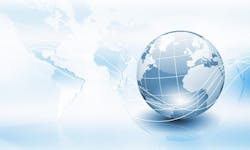Worldwide Certification
About the author: Amy Reichel is marketing and communications specialist for the Water Quality Assn. Reichel can be reached at [email protected].
Product certification is a common practice in the U.S. among manufacturers that make drinking water treatment products or products that come in contact with drinking water. This certification can help products meet different regulations put in place by city, state or federal governments. However, the U.S. is not alone when it comes to regulations for drinking water and standards created for specific product types. Countries around the globe have their own regulations and standards in place for drinking water, as well. This article includes examples of each.
Regulations Within the U.S.
California
Manufacturers now have to be registered in California in order to sell their products within the state if their product makes a health-related claim. The registration indicates that the product has been certified by an independent, accredited organization, such as the Water Quality Assn. This certification includes extensive testing in accordance with national standards. Manufacturers that wish to have their devices registered for sale in California must provide proof of independent certification and any other information on each device. This registration program is designed to verify the certification and ensure that the literature provided with each model adequately informs the customer.
Iowa
The Water Treatment System Registration Program put in place by the state of Iowa confirms that water treatment systems sold in Iowa with claims to reduce health-related contaminants have appropriate third-party verification of the claims. The program reviews third-party testing agencies to ensure they have the proper qualifications and capabilities. Systems that comply with the Iowa law are maintained on a registry, while technical assistance is provided to consumers and a preliminary investigation takes place of complaints regarding the sale of unregistered water treatment systems or that are making unsubstantiated claims.
Wisconsin
The Wisconsin Plumbing Products Register Database includes approval letters and attachments for pools, plumbing products and plumbing systems that have been issued an approval, alternate approval or experimental approval. Any product type that falls under experimental approvals only may be used at the installation site specified in the experimental approval letter. Plumbing products that fall under specific categories must be individually approved by the Industry Services Div. before they can be sold or installed for use in a plumbing system in the state of Wisconsin. These categories include chemical or biochemical treatments for POWTS (Private Onsite Wastewater Treatment System), health care plumbing appliances, drinking water treatment devices or bottled water vending machines. The full list can be found on Wisconsin’s Department of Safety and Professional Services website: drl.wisconsin.gov.
Municipal Regulations Within the U.S. for ANSI/NSF Standards 60 & 61
Arkansas
When it comes to chemical additives and materials, there are rules and regulations in place for the state’s public water systems. All chemicals added to the water and all materials in contact with in-process or treated water shall be certified as being in compliance with ANSI/NSF Standards 60 and 61, as applicable. Georgia Rule 391-3-5.04 covers chemical additives and materials that come into contact with drinking water in
Georgia.
These products must be certified for conformance with ANSI/NSF 60 and 61 by an American National Standards Institute-approved third-party certification program or laboratory.
International Regulations
Companies interested in selling their products in countries around the globe may have to comply to specific regulations put in to place by that country.
Spain
The Royal Decree 1138/1998 is a regulation that covers technical, sanitary regulations for the provision and control of the quality of water for public consumption. Another regulation set in place by Spain is the Ministerial Order SSI/304/2013. Under this regulation, substances used for the treatment of water intended for the production of water for human consumption must meet the requirements of Regulation (EC) No 1907/2006 concerning the Registration, Evaluation, Authorization and Restriction of Chemicals.
Germany
The German Standard DVGW-W270 focuses on microbial growth on materials that come in contact with drinking water. Products must comply with KTW guidelines, which contain test protocols and safety requirements for plastics and silicones that come into contact with drinking water, in order to achieve registration under DVGW—the German agency for water and gas—or to be able to use DIN/DVGW marks for drinking water applications. Non-metallic substances used in a product must be listed in the KTW Positive List. Manufacturers must use DVGW-authorized laboratories when testing for organoleptic, migration, total organic carbon and chlorine demand, along with microbial growth in accordance with W270.
Mexico
Mexican Standard NOM 244 SSA1-2005 covers environmental health water meant for human use and consumption. It also covers domestic-type treatment equipment sanitary requirements. Products that are imported into the country may require evidence of approval in its country of origin. They must be tested to national, mandatory NOM (Normas Oficiales Mexicanas or Mexican Official Standards) standards by an accredited Mexican laboratory. Testing may be conducted by a laboratory outside of Mexico if it holds a laboratory-to-laboratory mutual recognition agreement with an accredited Mexican laboratory.
Standards and regulations are created in multiple countries to help protect the people who live there. If you are interested in selling in a different state or country, it is best to know what regulations are in place in order for your products to be in compliance.
